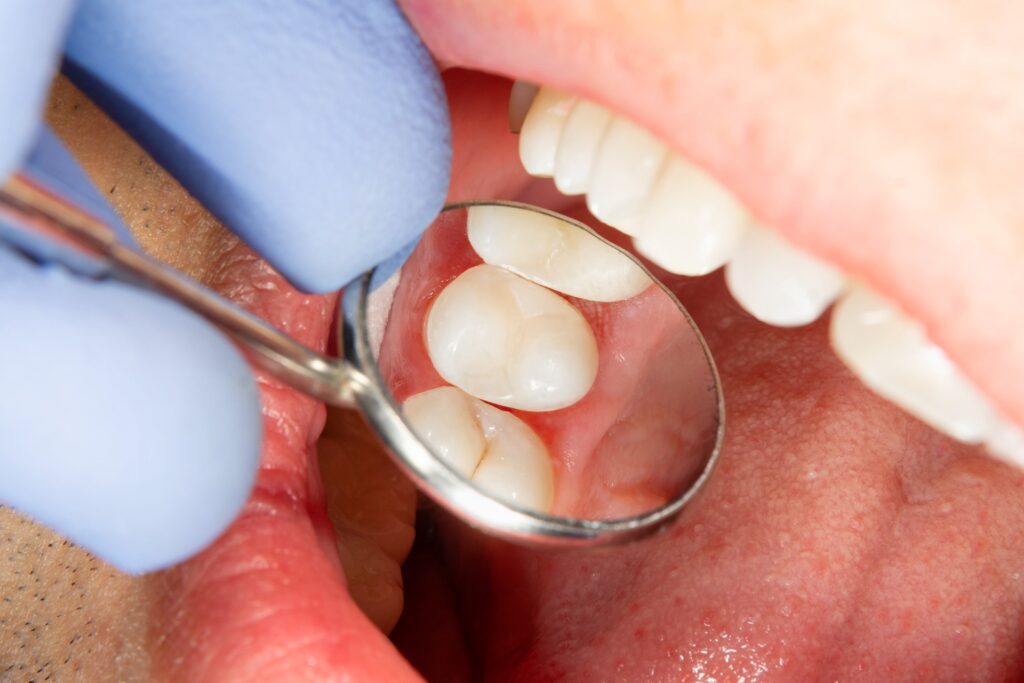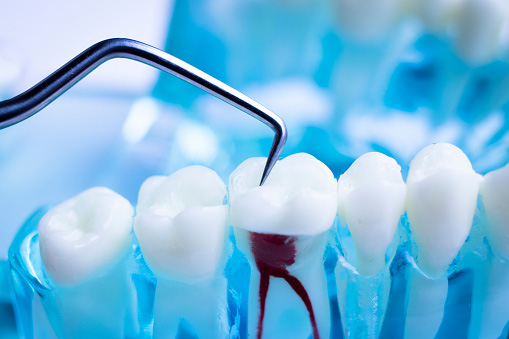Myths About Root Canal Therapy is a common procedure that is used to restore damaged teeth. It can help to prevent the need for teeth extractions and can even help to preserve a tooth’s natural structure. Despite its usefulness, there are many misconceptions about root canal therapy that can make people hesitant to seek out this procedure. In this blog article, we will be debunking some of the most common myths about root canal therapy, so that you can make an informed decision about whether or not it is right for you.
Common Myths About Root Canal Therapy
There are many misconceptions about root canal therapy, including that it is painful, that it can cause systemic health problems, and that it is expensive. Let’s take a look at each of these myths in more detail.

Myth #1: Root Canal Therapy is Painful One of the most common myths about root canal therapy is that it is a painful procedure. This is simply not true. In fact, the procedure is actually very similar to having a filling placed. The area of the tooth that is being treated is numbed with a local anesthetic, so you should not feel any discomfort during the procedure. In some cases, the tooth may be sensitive for a few days after the procedure, but this is generally manageable with over-the-counter pain medications.
Myth #2: Root Canal Therapy Can Cause Systemic Health Problems Another common myth about root canal therapy is that it can cause systemic health problems. This is not true. While there is some evidence that root canal therapy can cause inflammation in the body, there is no evidence that it can lead to systemic health issues or illnesses. This myth likely stems from the fact that root canals are performed on teeth that have been infected, and so people assume that the infection can spread throughout the body. This is simply not true, as any infection that is present in the tooth can be completely removed by the root canal procedure.
Myth #3: Root Canal Therapy is Expensive A final myth about root canal therapy is that it is expensive. This is also not true. In fact, root canal therapy can actually be much cheaper than having to extract a tooth and replace it with an artificial one. The cost of root canal therapy also varies depending on the severity of the tooth damage, so it is worth speaking to your dentist to get an accurate estimate of the cost.

How Root Canal Therapy is Performed
Root canal therapy is a relatively straightforward procedure that is performed by a dentist or endodontist. The first step is to take an X-ray of the tooth to get a better idea of the extent of the damage. The dentist will then use a dental drill to remove the infected or damaged tissue from inside the tooth, and then use a series of files to shape the canal. Once the canal has been shaped, the dentist will fill it with a rubber-like material called gutta-percha. Finally, the dentist will seal the tooth with a filling or crown.
How to Prepare for Root Canal Therapy
Before you undergo root canal therapy, it is important to make sure that you are well-prepared. This includes making sure that you have all of the necessary paperwork and x-rays for the procedure, as well as talking to your dentist about any questions or concerns that you may have. It is also important to make sure that you have a friend or family member who can drive you home after the procedure, as you may be feeling a bit groggy from the anesthetic.
What to Expect During and After Root Canal Therapy
During root canal therapy, you should expect some slight discomfort as the dentist works to remove the damaged tissue and shape the canal. This discomfort should be manageable with the local anesthetic, however. After the procedure, you should expect some soreness in the tooth and surrounding area. This is normal and should subside within a few days. If the pain persists for more than a few days, you should speak to your dentist as soon as possible.

How to Care for Your Teeth After Root Canal Therapy
After root canal therapy, it is important to take good care of the tooth that was treated. This includes brushing and flossing the area twice a day and avoiding hard or crunchy foods that could damage the tooth. It is also important to keep up with your regular dental check-ups so that your dentist can monitor the condition of the treated tooth.
Conclusion
Root canal therapy is a safe and effective procedure that can help to restore damaged teeth. There are many misconceptions about root canal therapy, however, including that it is painful, that it can cause systemic health problems, and that it is expensive. In this blog article, we have debunked these common myths about root canal therapy, so that you can make an informed decision about whether or not it is the right procedure for you. If you have any questions or concerns, it is always best to speak to your dentist.






